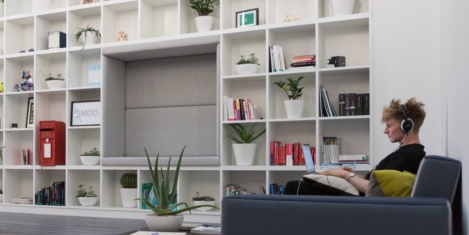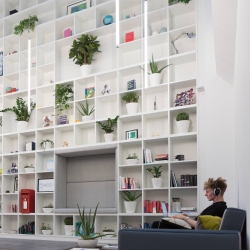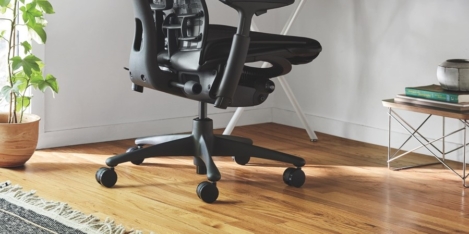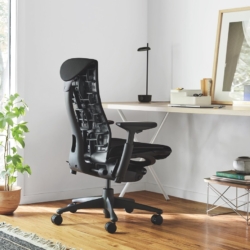To provide the best experiences, we use technologies like cookies to store and/or access device information. Consenting to these technologies will allow us to process data such as browsing behaviour or unique IDs on this site. Not consenting or withdrawing consent, may adversely affect certain features and functions.
The technical storage or access is strictly necessary for the legitimate purpose of enabling the use of a specific service explicitly requested by the subscriber or user, or for the sole purpose of carrying out the transmission of a communication over an electronic communications network.
The technical storage or access is necessary for the legitimate purpose of storing preferences that are not requested by the subscriber or user.
The technical storage or access that is used exclusively for statistical purposes.
The technical storage or access that is used exclusively for anonymous statistical purposes. Without a subpoena, voluntary compliance on the part of your Internet Service Provider, or additional records from a third party, information stored or retrieved for this purpose alone cannot usually be used to identify you.
The technical storage or access is required to create user profiles to send advertising, or to track the user on a website or across several websites for similar marketing purposes.
 Following the sobering message from the IPCC Sixth Assessment Report, a coalition led by C40, the Global Alliance for Building and Construction (GlobalABC), The Resilience Shift, World Business Council for Sustainable Development (WBCSD) and World Green Building Council (WorldGBC) announce #BuildingToCOP26 — a partnership to promote radical collaboration for climate change action ahead of the Cities, Regions and Built Environment Day at COP26. (more…)
Following the sobering message from the IPCC Sixth Assessment Report, a coalition led by C40, the Global Alliance for Building and Construction (GlobalABC), The Resilience Shift, World Business Council for Sustainable Development (WBCSD) and World Green Building Council (WorldGBC) announce #BuildingToCOP26 — a partnership to promote radical collaboration for climate change action ahead of the Cities, Regions and Built Environment Day at COP26. (more…)








 As businesses in the UK prepare to open their office doors en masse in the first week of September, new research reveals that office workers have got that back-to-school excitement and are feeling largely positive about the transition. Recruitment firm Michael Page questioned over 2,000 UK office workers on their attitudes to returning to the office and found that after eighteen months at home, around half claim to be ‘excited’ or ‘happy’ to spend more time in the office with their colleagues. Reminiscent of the first day back at school, almost three in ten (28 percent) said that they had picked out their outfit and packed their bag ahead of their first day back in the office.
As businesses in the UK prepare to open their office doors en masse in the first week of September, new research reveals that office workers have got that back-to-school excitement and are feeling largely positive about the transition. Recruitment firm Michael Page questioned over 2,000 UK office workers on their attitudes to returning to the office and found that after eighteen months at home, around half claim to be ‘excited’ or ‘happy’ to spend more time in the office with their colleagues. Reminiscent of the first day back at school, almost three in ten (28 percent) said that they had picked out their outfit and packed their bag ahead of their first day back in the office. 
 CEOs of the world’s largest businesses are increasingly optimistic about the outlook for their own business, according to the latest
CEOs of the world’s largest businesses are increasingly optimistic about the outlook for their own business, according to the latest 
 With a large number of firms now prepared to embrace a ‘hybrid working’ model, business leaders remain uncertain about how this may play out in practice according to a new report from Entrust called
With a large number of firms now prepared to embrace a ‘hybrid working’ model, business leaders remain uncertain about how this may play out in practice according to a new report from Entrust called 
 UK workers have the oldest expected retirement age out of five European countries, according to new research from HR software provider
UK workers have the oldest expected retirement age out of five European countries, according to new research from HR software provider 
 Older workers might choose to delay their retirement if offered the option of continuing to do their jobs working from home after the pandemic, according to
Older workers might choose to delay their retirement if offered the option of continuing to do their jobs working from home after the pandemic, according to 


 An overtime “epidemic” driven by the rise in home working during the pandemic must be curtailed with new right to disconnect laws, according to a
An overtime “epidemic” driven by the rise in home working during the pandemic must be curtailed with new right to disconnect laws, according to a 
 Nearly half (42 percent) of employees think the working culture of their organisation has deteriorated during the pandemic. That’s according to research by
Nearly half (42 percent) of employees think the working culture of their organisation has deteriorated during the pandemic. That’s according to research by 
 A third of UK workers admit they’ve forgotten the password to their computer, office entrance or locker, one in five workers have forgotten a colleague’s name or called them by the wrong name and say their small talk skills have been impacted by working from home. Those are some of the findings of a new report from
A third of UK workers admit they’ve forgotten the password to their computer, office entrance or locker, one in five workers have forgotten a colleague’s name or called them by the wrong name and say their small talk skills have been impacted by working from home. Those are some of the findings of a new report from 
 Employers are indicating strong employment intentions for the third quarter of 2021, with confidence surpassing pre-pandemic levels to hit a nine year high. This is the key finding of the latest quarterly CIPD
Employers are indicating strong employment intentions for the third quarter of 2021, with confidence surpassing pre-pandemic levels to hit a nine year high. This is the key finding of the latest quarterly CIPD 








August 23, 2021
Executives think work should be split 70:30 between office and home
by Neil Franklin • Comment, Flexible working